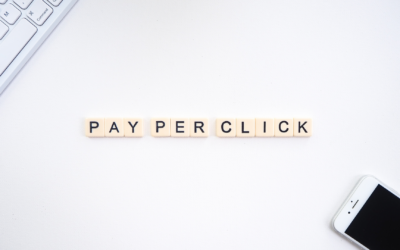What is Event Marketing?
Event marketing strategy refers to the coordinated effort of planning and promoting events to engage your audience and promote your brand. It starts with generating excitement through pre-event marketing, continues delivering engaging content during the event, and ends with post-event follow-up to sustain engagement and measure success.
Types of Event Marketing
- Conferences and Trade Shows: Large gatherings often involve multiple sponsors and exhibitors, ideal for networking and lead generation.
- Seminars and Workshops: Smaller, education-centric events that focus on specific topics relevant to your industry.
- Product Launches: Events designed to introduce new products to the market, generating buzz and initial sales.
- Pop-Up Shops: Temporary retail spaces allow businesses to engage directly with customers in a unique setting.
- Webinars and Virtual Events: Online events that can reach a global audience, providing flexibility and reducing logistical challenges.
- Networking Events: Casual gatherings aimed at fostering relationships within your industry.
Benefits of Event Marketing
- Direct Engagement: Events facilitate face-to-face interaction, which helps build stronger relationships with your audience.
- Brand Awareness: Hosting or participating in events increases visibility and reinforces your brand presence.
- Lead Generation: Events attract potential customers and provide opportunities to capture leads.
- Networking: Events provide a platform for connecting with industry peers, influencers, and potential partners.
Crafting an Effective Event Marketing Strategy
1. Setting Clear Objectives
Before diving into the gritty details, define your event marketing strategy objectives. Common goals include increasing brand awareness, generating leads, launching new products, or educating your audience.
2. Choosing the Right Type of Event
Select the event type that best aligns with your objectives and audience. For example, a tech company might benefit more from hosting a webinar or attending a trade show. At the same time, a lifestyle brand might opt for a pop-up shop or product launch.
3. Developing a Promotional Plan
A defined promotional plan helps to drive strong attendance. Utilize a mix of different channels in your event marketing strategy:
- Email Marketing: Send targeted emails to your subscriber list. Create a series of emails leading up to the event, highlighting key speakers, topics, and special offers.
- Social Media: Leverage platforms like Facebook, Twitter, LinkedIn, and Instagram to create buzz. Use event-specific hashtags, run contests, and share engaging content.
- Content Marketing: Write blog posts, create videos, and design infographics related to your event. This content should provide value and drive interest.
- Paid Advertising: Use PPC campaigns on Google and social media ads to reach a broader audience. Target specific demographics to maximize ROI.
- Influencer Partnerships: Collaborate with influencers who resonate with your target audience to promote your event.
4. Creating Engaging Content
Event marketing relies on standout content. Develop compelling and diverse content to keep your audience engaged by incorporating pre-event content like teasers, interviews with speakers, behind-the-scenes videos, and blog posts; onsite content such as live streaming, real-time updates on social media, and interactive sessions; and post-event content including recap videos, thank you emails, and follow-up blog posts.
5. Leveraging Technology
Use event management software to streamline registration, ticketing, and attendee communications. Platforms like Eventbrite and Cvent offer comprehensive solutions for managing event logistics and marketing.
6. Implementing an Event Timeline
Develop a detailed timeline that outlines all the event marketing strategy activities leading up to the event. This includes initial promotions, reminders, last-minute pushes, and post-event follow-ups.
7. Engaging Attendees
Engagement doesn't stop at registration. Keep your audience engaged through interactive elements such as Q&A sessions, live polls, and social media interactions during the event.
8. Post-Event Follow-Up
Engage with attendees after the event to maintain momentum. Send thank you emails, share event highlights, and collect feedback through QR code surveys. Use this feedback to refine future events and improve your engagement rates. Keeping the conversation going on social media and other platforms ensures your brand stays top-of-mind.
Event Marketing Strategy Impact on Revenue
Measuring the return on investment (ROI) ensures that your event marketing strategy is effective and justified. Key metrics to consider include Customer Acquisition Cost (CAC), which calculates the total cost of acquiring a new customer through the event, and Customer Lifetime Value (LTV), which measures the total revenue expected from a customer over their relationship with your business. Cost Per Lead (CPL) is another essential metric that determines the cost-effectiveness of your lead generation efforts by calculating the cost of generating each lead.
By tracking these metrics, you can optimize your strategy to target high-value customers, reduce acquisition costs, and demonstrate the value of event marketing to stakeholders. For example, a conference costing $50,000 that acquires 200 new customers, each with an LTV of $1,000, results in a gross revenue of $200,000. This scenario yields a CAC of $250 and an MROI of 300%. Such metrics indicate a successful event with a high return on investment, allowing for better decision-making regarding future events and marketing initiatives.
Ready to elevate your event marketing strategy? Contact us to go from Founder Revenue to Scalable Revenue.



